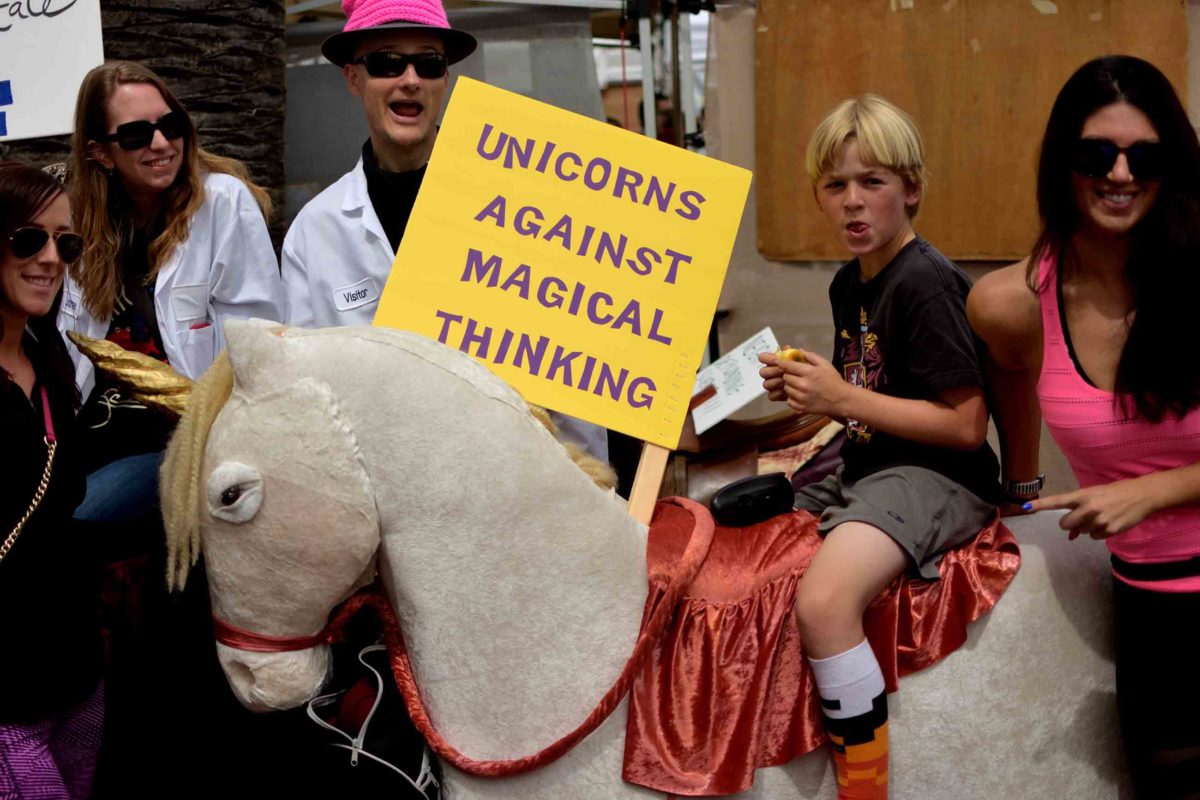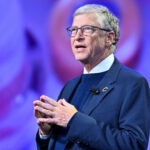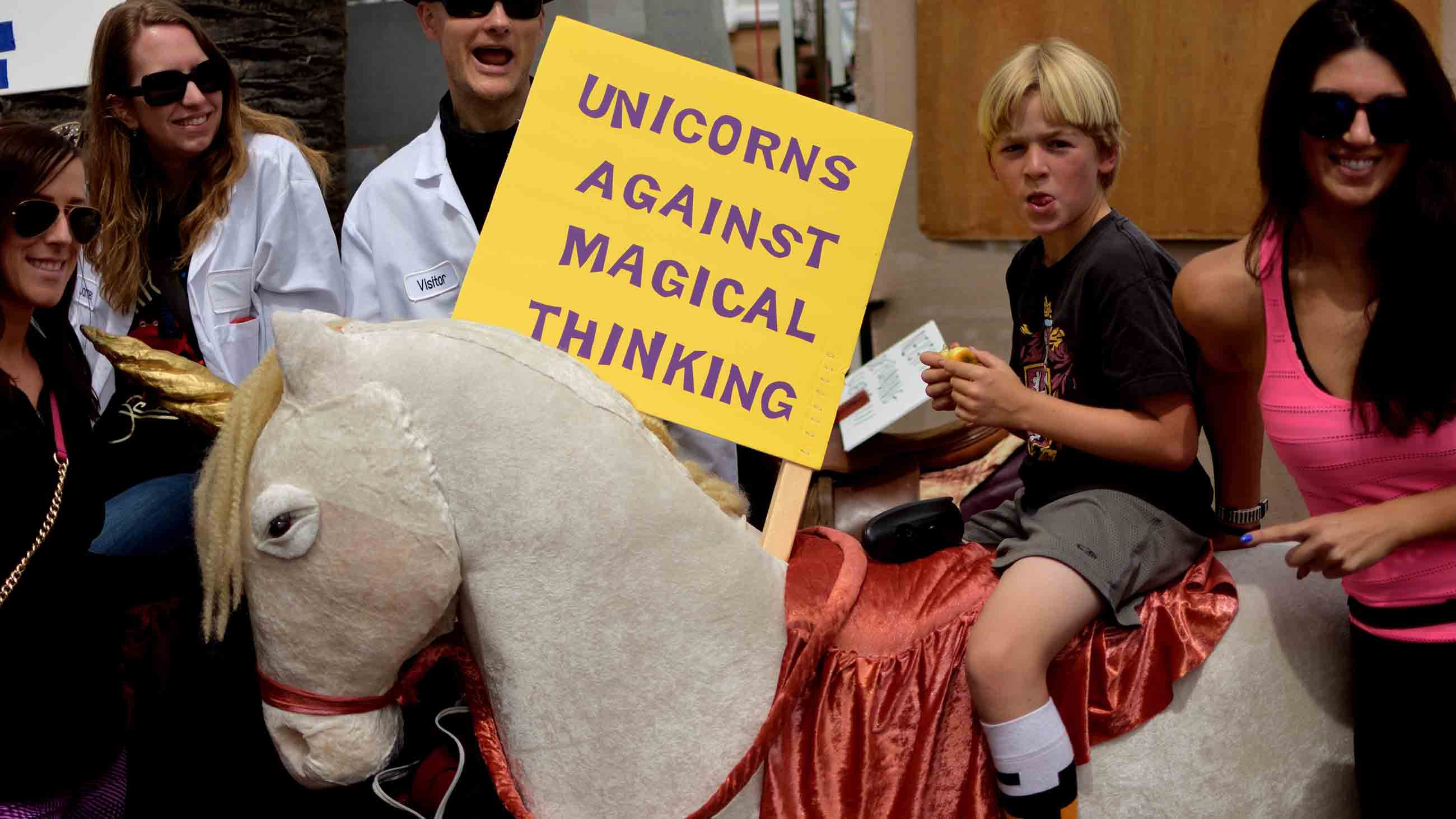In a keynote speech delivered Sunday at the annual conference of the American Association for the Advancement of Science (AAAS), former U.S. Vice President Joe Biden took time to deliver a stinging rebuke of the unscientific mindset that has overtaken much of the U.S. regulatory regime since the arrival of President Donald Trump just over a year ago.

The anti-science positions of President Donald Trump and many of his appointees are animating scientists and researchers to run for public office — with big ad buys already being made ahead of the midterm elections.
Visual: Tom Hilton/Flickr/CC
“If entire agencies aren’t allowed to use the words ‘evidence-based’ or ‘science-based,’ it reminds me of an Inquisition writ small,” Biden told the scientists and educators gathered in Austin, Texas, for the five-day event. “You in this audience are the nation’s best defense against climate change, famine, threats to national defense, and much more.”
That’s an increasingly familiar refrain among American academics and scientists, many of whom are proving politically motivated by the magical thinking that has come to typify official Washington — including the Republican-controlled Congress — in the Trump era. Indeed, if recent tallies in the press are a realistic indication, large numbers of scientists are coming to the conclusion that little will change unless empiricists like themselves speak out on public issues and step up for public office.
The Huffington Post reported this month that a record number of scientists, engineers, and other researchers — more than 60, by their count — have thrown their hats into the ring for federal office ahead of the midterm elections. Another 200 are pursuing positions in state legislatures. What’s more, there appears to be some real money backing their efforts.
Just this week, The Hill reported that the advocacy group 314 Action — named for the first three digits of π and devoted to nudging more people with science, technology, engineering, and math backgrounds into political office — had reserved roughly $2 million in television ad spots in three competitive congressional districts. The group also released the results of a national poll — albeit one conducted by a Democratic polling firm — suggesting that as many as 72 percent of Americans say they would be more inclined to support candidates with experience in science.
“Today, 314 Action is demonstrating its commitment to electing scientists,” Joshua Morrow, executive director of the group, was quoted as saying, “by making our first major investment of resources into areas where we think scientists have a clear shot at flipping seats in November.”
Also in the news:
• Speaking of the AAAS conference, the interwebs were abuzz after Claudia Kawas, a scientist from the University of California, Irvine, spoke at the meeting about her team’s long-term study of human longevity. Among the study’s findings: For people over 90, having a couple of drinks per day seemed to be more effective at prolonging life than exercise. Like a game of telephone, that tidbit quickly became distorted in repeated tellings across the blogosphere, with headlines declaring “Drinking Alcohol Tied to Long Life,” or simply: “Want to Live Longer? Drink Beer.” Lost in many of these translations was that the research focused exclusively on the dietary habits of people who were already living well beyond the average lifespan, a fact Kawas made clear in her comments to the conference audience. “Keep in mind that I start studying people when they’re 90,” she said. “I think it’s very likely that individuals who have very excessive alcohol intake at younger ages don’t even make it to their 90s.” (Chicago Tribune, Live Science)
• Poor monitoring, a decline in routine immunization, and a disruption in vaccine supply caused a surge of measles cases across Europe in 2017, according to new data released by the World Health Organization on Monday. More than 21,000 cases and 35 deaths were reported, with large outbreaks in 15 of the 53 countries in the region. The numbers were especially disappointing given the record low number of cases reported just one year earlier. Health ministers met this week to discuss how they plan to achieve vaccination goals set out in the European Vaccine Action Plan by 2020. (The Guardian)
• After an unusually wet winter a year ago, Gov. Jerry Brown of California lifted emergency water restrictions that had been in effect since 2014, amid the state’s severest drought in decades. But dry weather returned with a vengeance this winter, and now the state’s Water Resources Control Board is considering a plan to make some of those restrictions permanent. Among other things, homeowners could be fined $500 for watering their lawns so much that water flows into the street; using a hose to wash down sidewalks; or washing their cars with a hose that lacks an automatic shut-off nozzle. On Tuesday, officials from several irrigation and water agencies protested the plan, saying it was too broad and might be abused by “erratic individuals” in state government. The board is expected to make a final decision by April 17. (Associated Press)
• A new review of antidepressant research — in which scientists sifted through more than 500 studies of drugs ranging from Prozac to Celexa — shows that the compounds work as promised, although some far better than others. According to the analysis published in The Lancet this week, the antidepressant Elavil topped the list for effective treatment; Prozac and Trazadone were less potent but showed fewer side effects. The lead author of the study, Andrea Cipriani of Britain’s National Institute for Health Research, said a major problem is that while effective treatment for depression is available, many people don’t receive it. And untreated depression, she said, is “a huge burden for society.” (The Guardian)
• In a letter to his superiors at the U.S. Geological Survey — written in December but obtained and published this week by Mother Jones magazine — the agency’s associate director for energy and minerals, Murray Hitzman, tendered his resignation in protest of what he viewed as violations of “USGS fundamental science policy” by Trump appointees at the Department of Interior, which houses USGS. A second agency scientist, Larry Meinert, told the magazine that he’d similarly resigned in response to pressure from superiors to violate guidelines. At issue was USGS’s acquiescence to a request from Interior Secretary Ryan Zinke to review unpublished data from a study of oil and gas deposits in Alaska, a request that the agency researchers — and several former USGS officials interviewed — perceived as a clear violation of USGS’s Fundamental Science Practices. (Mother Jones)
• And finally, a study published in the journal Science this month found that — at least in Los Angeles — the air pollution emanating from common household products is actually on par with the tailpipe emissions burping out of millions of cars and trucks. The study estimated that the volatile organic compounds off-gassing from personal care products like deodorants, hair sprays, shampoos, and nail polish, as well household paints, glues, solvents, and cleaners, are contributing to ground-level ozone and other atmospheric particulate pollution in volumes comparable to that of the transportation sector. In an interview this week, lead author and atmospheric scientist Brian McDonald portrayed the findings as a “good news” story. Federal regulations on car and truck pollution have been so effective, McDonald reasoned, that “other sources of air pollution” — like your deodorant, for example — “are becoming relatively more important.” (Science Friday)
UPDATE: An earlier version of this article referred incorrectly to the drug Elavil (amitriptyline), the most effective of the antidepressants studied in a new review. Discovered in 1960, it is not a “newer antidepressant.”











Comments are automatically closed one year after article publication. Archived comments are below.
Hi,
As writer myself I just wanted to let you know that it is a pleasure to read your articles – both for content and literary excellence. Keep it up